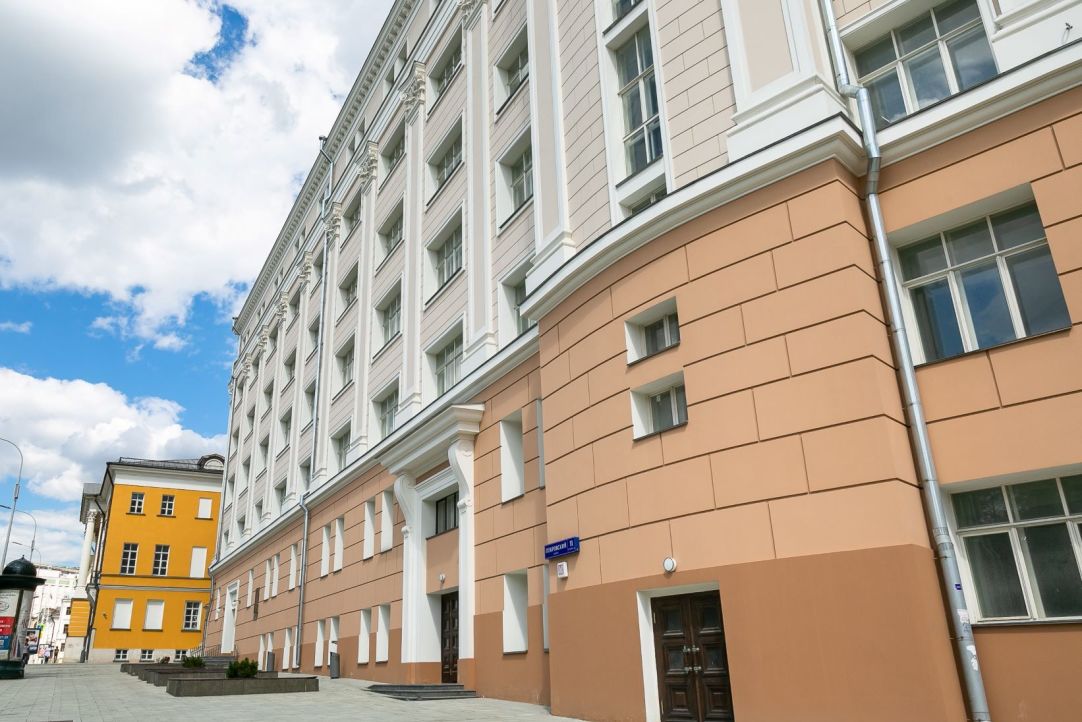
University Codes of Conduct Should Be Concise and Precise
The HSE University International Advisory Committee met online on May 19 to discuss the proposed Codes of Conduct for faculty and students, as well as assess the university’s transition to online learning.
Academic Parties, Online Lunches, and Buddies for Staff. How the HSE community is maintaining its team spirit and helping each other while working from home
Despite the regular Zoom meetings, emails, and online chats, a lack of face-to-face communication makes colleagues feel disconnected from each other. We’ve talked to some members of the HSE community about what they do to feel connected and support each other during these uneasy times.
Open Doors Day-2020
According to tradition, in mid-April, the HSE ISSEK Master's programme “Governance of Science, Technology, and Innovation” holds an Open Doors Day. In conditions of social isolation, the meeting of potential applicants and programme representatives was first held in an online format — like “Open Windows Day”.
Science. Technology. Innovation: 2020
This pocket data book contains the main S&T and innovation indicators for the Russian Federation. The publication includes the most recent statistical data on R&D input and output, as well as international comparisons.
FAQ on Reimbursement of Travel Expenses
Starting March 7, HSE University introduced a series of protective measures against the spread of the novel coronavirus. The measures included the ban on international work- or school-related travel. Here are answers to campus members’ most frequently asked questions about reimbursement for cancelled business trips and mobility programmes.
International Travel, Vacations, Reimbursement, and Working in Self-Isolation. Everything Employees Need to Know about HSE’s Precautionary Measures against the Spread of Coronavirus
On March 7, HSE University instituted a number of protective measures in order to prevent the spread of the novel coronavirus and the disease it causes, COVID-19. Among these measures is a ban on all international business trips for HSE employees and students until further notice. Below, the university administration provides answers to HSE community members’ most frequent questions about how to cancel their travel plans and work in self-isolation.
HSE Introduces Protective Measures on Account of Coronavirus
In accordance with Moscow Mayor Sobyanin's recent decree regarding travel and self-quarantine requirements, HSE University is introducing protective measures to prevent the spread of coronavirus. HSE Rector Yaroslav Kuzminov signed the order on March 7.
HSE Students and Staff Are Strongly Encouraged to Refrain from International Travel
Beginning March 5, the Mayor of Moscow has declared a state of high alert amid the threat of the novel coronavirus COVID-19.

HSE Launches New International Laboratories
For ten years now, HSE has been holding an annual grant competition for researchers who wish to start new international laboratories at HSE in collaboration with leading foreign scholars and scientists. The most recent competition reached its conclusion this past November, and now some of the selected proposed labs have already begun operation. Who are the competition winners and what kind of research will they be doing?


.jpg)